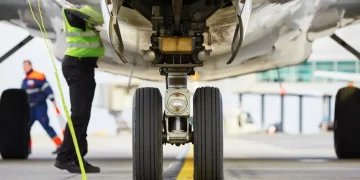The air cargo industry, a vital cog in the global supply chain, is facing a potential storm. A growing shortage of qualified pilots threatens to disrupt operations and potentially drive up shipping costs for businesses. Here’s a closer look at the brewing crisis and its potential impact.
The Pilot Pipeline Runs Dry:
Several factors are contributing to the pilot shortage:
- Aging Workforce: A significant portion of the current pilot workforce is nearing retirement age, creating a shortage of experienced pilots.
- Rigorous Training Requirements: Becoming a qualified air cargo pilot requires extensive training and certifications, deterring some potential candidates.
- Competitive Salaries in Passenger Airlines: Passenger airlines often offer higher salaries and potentially better career paths, attracting pilots away from the air cargo sector.
Potential Disruptions and Rising Costs:
The pilot shortage could lead to several consequences:
- Flight Cancellations and Delays: Airlines may be forced to cancel or delay flights due to a lack of qualified pilots, impacting cargo delivery timelines.
- Increased Shipping Costs: Airlines may raise prices to offset the cost of recruiting and retaining pilots, potentially impacting businesses relying on air cargo.
- Supply Chain Disruptions: Disruptions in air cargo operations could have a ripple effect, impacting the flow of goods across the globe.
Industry Efforts to Take Flight:
Airlines are taking steps to address the pilot shortage:
- Investing in Pilot Training: Some airlines are investing in their own pilot training programs to create a pipeline of qualified pilots.
- Offering Competitive Salaries and Benefits: Air cargo companies are re-evaluating their compensation packages to attract and retain pilots.
- Partnering with Flight Schools: Collaborations with flight schools are aimed at encouraging more individuals to pursue careers as air cargo pilots.
Looking to the Skies for Solutions:
The air cargo industry needs a multi-pronged approach to address the pilot shortage:
- Government Incentives: Policymakers could consider offering incentives to attract and train more pilots specifically for the air cargo sector.
- Streamlining Training Programs: Exploring ways to streamline or potentially reduce training costs could encourage more individuals to pursue pilot careers.
- Promoting Career Opportunities: Raising awareness about the stability and rewarding aspects of a career as an air cargo pilot is crucial.
A Crucial Role in the Global Economy:
Air cargo plays a vital role in the global economy, transporting essential goods across continents. Ensuring a sufficient workforce of qualified pilots is critical for maintaining the smooth flow of goods and mitigating potential disruptions in the supply chain.























